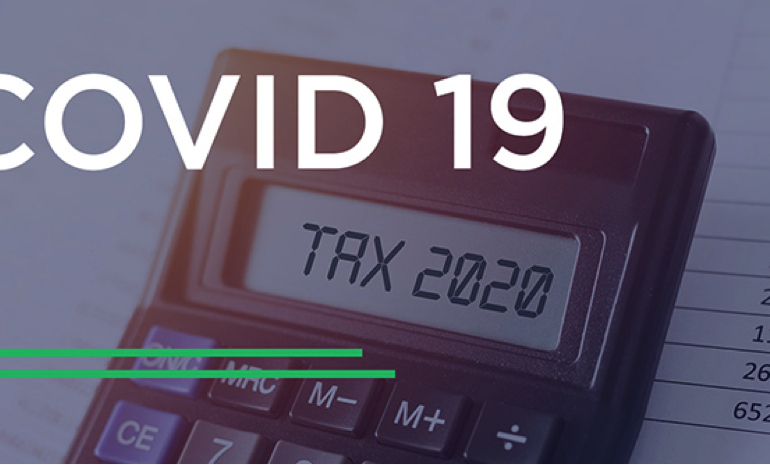If you run an e-commerce business in Florida, understanding the sales tax requirements is crucial to ensure you are compliant with the law. Florida has a unique set of rules and regulations that govern how sales tax should be collected, reported, and remitted. Understanding these requirements is essential for e-commerce businesses to avoid penalties and fines.
As a trusted local CPA firm based in Jacksonville, FL for many years, our team at Brock CPA knows from experience that diligent, forward-thinking tax planning, preparation and compliance is the best possible way to limit your present and future tax liabilities, and this applies to e-commerce businesses with a presence in the Sunshine State.
What is sales tax?
Sales tax is a tax levied by state and local governments on the sale of goods and services. This tax is usually paid by the buyer at the point of sale and is collected by the seller. The sales tax rate varies depending on both the location of the business and the type of product or service being sold. For example, in Florida, sales of food and prescription drugs are not subject to sales tax, and some counties and municipalities add an additional local sales tax. Florida’s general sales tax rate is 6%, but the city of Miami has a local sales tax rate of 7.5%.
Do e-commerce businesses need to collect sales tax in Florida?
Yes. All sales of taxable tangible personal property made online are subject to tax when the merchandise is delivered to a customer located in Florida. If the seller is registered as a Florida dealer, the seller should collect Florida sales tax.
Sales tax requirements for e-commerce businesses
To comply with the requirements, e-commerce businesses must register with the Florida Department of Revenue and obtain a sales tax permit. You can do this online at the Department of Revenue’s website.
During the registration process, you will need to provide information about your business, including your business name, address, and federal tax ID number. Once you receive a certificate of registration, you should display at your place of business or include it on your e-commerce website. You must also begin collecting sales tax from customers and remitting the tax to the state.
Because rates vary depending on the location of the business and the type of product or service being sold, e-commerce businesses must determine the correct sales tax rate for each transaction based on the location of the customer. This can be challenging for businesses that sell products or services to customers in multiple states, as each state has its own sales tax rate.
The state of Florida offers a sales tax rate lookup tool that e-commerce businesses can use to determine the correct sales tax rate for each transaction. This tool allows businesses to enter the customer’s address and the type of product or service being sold to determine the correct sales tax rate.
E-commerce businesses must also file sales tax returns with the Florida Department of Revenue. Sales tax returns are due monthly, quarterly, or annually, depending on the amount of sales tax collected.
If you collect less than $1,000 in sales tax per year, you are required to file an annual return. If you collect between $1,000 and $12,000 in sales tax per year, you are required to file a quarterly return. If you collect more than $12,000 in sales tax per year, you are required to file a monthly return.
E-commerce businesses must report the total amount of sales, the total amount of sales tax collected, and any exemptions or deductions that apply.
Sales tax exemptions and deductions
Certain products and services may be exempt from sales tax in Florida. For example, groceries, prescription drugs, and medical equipment are exempt from sales tax. E-commerce businesses that sell these types of products must obtain a sales tax exemption certificate from the customer to exempt the sale from sales tax.
E-commerce businesses may also be eligible for sales tax deductions. For example, businesses may deduct the cost of materials used to manufacture a product from the sales price before calculating the sales tax owed. This reduces the amount of sales tax owed and can help businesses save money.
Penalties and fines for non-compliance
E-commerce businesses that fail to comply with sales tax requirements in Florida may be subject to penalties and fines. The Florida Department of Revenue may assess a penalty of 10% of the amount of tax due or $50, whichever is greater, for each month that the return is late. The department may also assess a penalty of 10% of the tax due for each transaction that was not properly reported or for each transaction for which sales tax was not collected.
In addition to penalties and fines, e-commerce businesses that fail to comply with sales tax requirements may also be subject to audits by the Florida Department of Revenue. Audits can be time-consuming and costly, and businesses may be required to pay back taxes and penalties if they are found to be non-compliant.
Tips for staying compliant with sales tax requirements in Florida
- Keep detailed records of all sales made and the amount of sales tax collected. This includes both online and offline sales.
- Be aware of the local sales tax rates that may apply to your business and ensure that you are collecting sales tax at the correct rate.
- File a sales tax return with the Florida Department of Revenue on a monthly or quarterly basis. Remit payment on time to avoid penalties and interest charges.
- Consider using a third-party service provider to help you automate the process of collecting and remitting sales tax.
- If you have any questions about sales tax requirements in Florida, consult with your CPA or contact the Florida Department of Revenue.
- Stay up-to-date with any changes to Florida’s sales tax laws.
If you need assistance with tax planning, preparation and remittance for your e-commerce business, contact the tax professionals at Brock CPA. We are full-service local CPA firm in Jacksonville, FL that helps our clients achieve their business goals with full-service assistance across a broad range of specialties. We believe in building strong personal relationships with our clients, helping them minimize their tax liabilities, navigate their financial challenges and maximize growth opportunities across the life cycles of their businesses. Call us today by calling 904-330-0268 or emailing dbrock@brockcpa.com.


